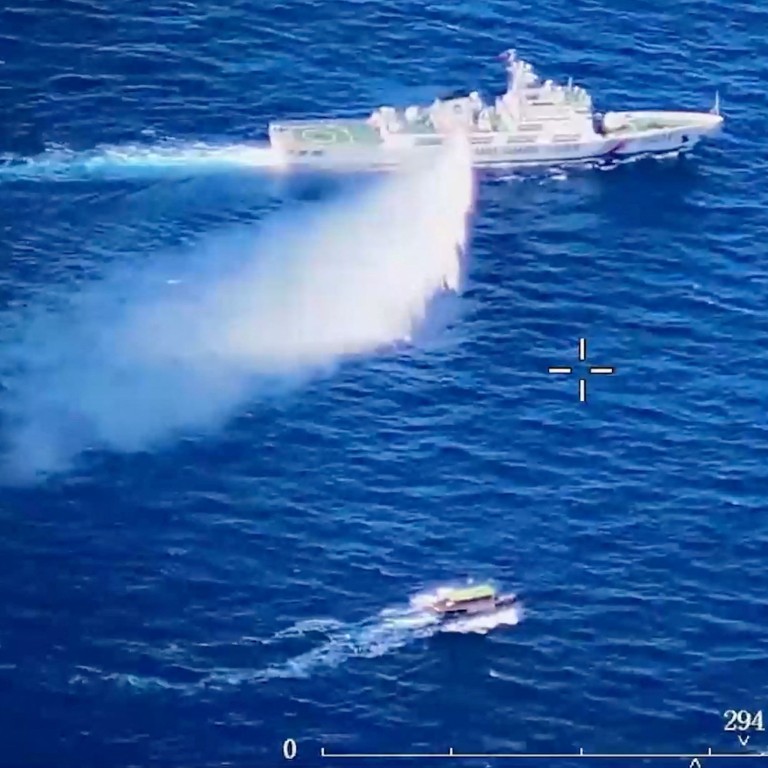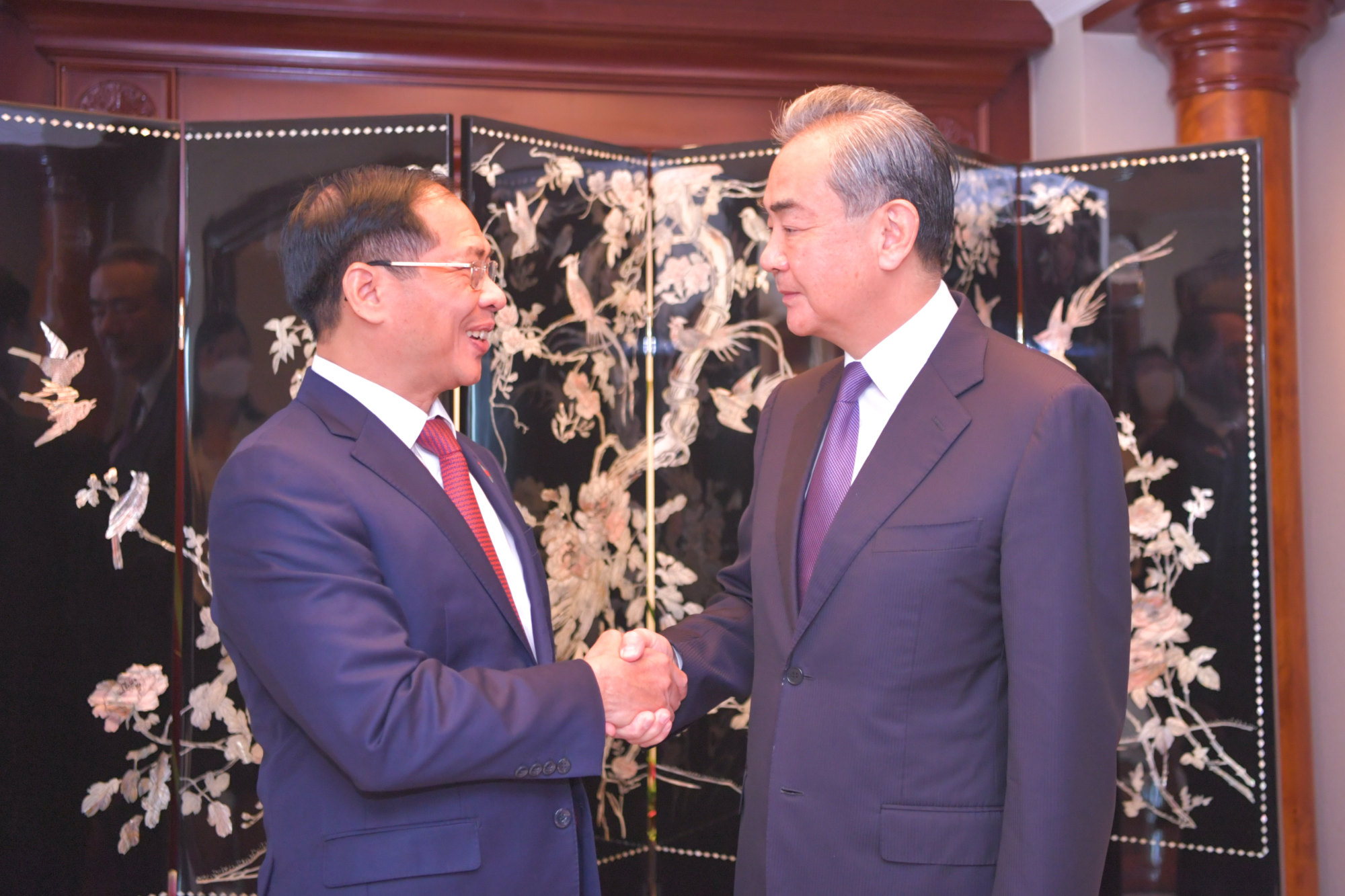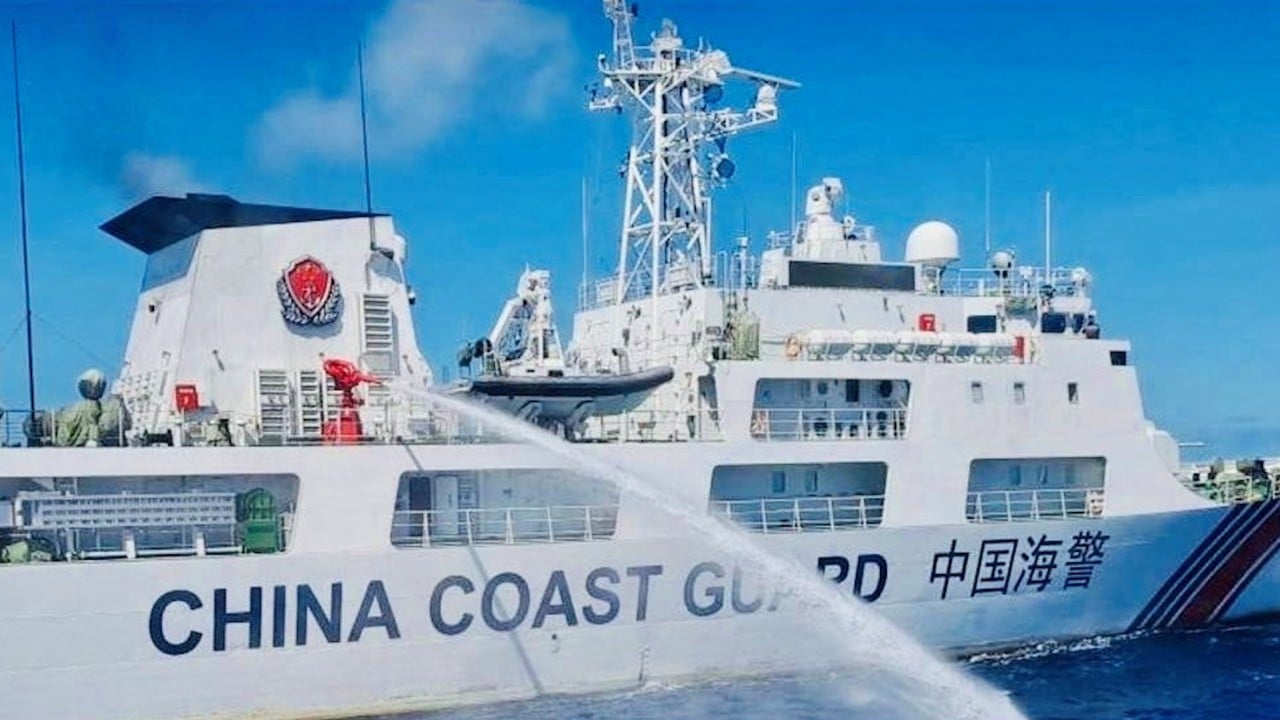
How South China Sea moves by Beijing are sending Vietnam, others in region deeper into US embrace
- Vietnam will upgrade US ties to the level of those with China when President Joe Biden arrives for his first visit on Sunday
- Surprise move from long-time communist ally highlights souring of traditionally friendly Southeast Asian ties over Beijing’s maritime muscle-flexing
Biden’s trip and the expected upgrade in bilateral ties mark a double breakthrough after years of US efforts to court Vietnam, which has steadily tilted towards Washington but nonetheless continued its balancing act in the US-China rivalry.
The change in status will elevate the United States by two notches to the highest level in Vietnam’s diplomatic hierarchy – alongside China, Russia, India and South Korea.
This undoubtedly comes as a big surprise for Beijing, as Hanoi had initially expressed caution about the upgrade over likely repercussions on ties between the communist-ruled neighbours.
China’s top diplomat Wang Yi urges Vietnam to help uphold Communist ideals
The move also looks set to reinforce China’s sense of being under siege. Officials and observers in Beijing have voiced fears about a return of America’s “triangular diplomacy”, which then US top diplomat Henry Kissinger adeptly used half a century ago to tilt the Cold War balance of power – by reopening direct diplomacy with China to counter the Soviet Union.

This is not the first time that Wang has invoked the Ukraine crisis in sounding an alarm against outside interference in the region.
“We can’t let the Cold War mentality resurge in the region and the tragedy of Ukraine be repeated around us,” he told Bui, according to an official readout on the Chinese foreign ministry website. Vietnam is a fellow socialist nation, Wang said, urging that it join hands with China to “resist external risks [and] cope with the spillover effects of the Ukraine crisis in the region”.
Although Hanoi shares Beijing’s ambivalent attitude towards the Russian invasion of Ukraine, repeated warnings from China appear to have failed to stop Vietnam from stepping up political, military and economic ties with the US amid a bitter maritime dispute with its more powerful neighbour.
In fact, Hanoi’s warming US ties underline yet again just how far Beijing’s traditionally friendly relations with its Southeast Asian neighbours have been soured by simmering tensions in the South China Sea, where both Vietnam and China are among the rival claimants.
South China Sea: could Philippines and Vietnam bond over assertive Beijing?
The Biden administration has clearly benefited the most from the persistent territorial dispute in the South China Sea, which has amplified fears about an increasingly assertive and self-centred China.
The US elevated ties with the Association of Southeast Asian Nations to a comprehensive strategic partnership late last year, after having enlisted Vietnam as a member of its “Quad Plus” framework in 2020.
Beijing has long denounced the US-led Quad grouping with India, Japan and Australia as an anti-China security bloc and “Indo-Pacific Nato” in the making.
“In many ways, the PRC is doing its work for us,” former US assistant secretary of state David Stilwell told the Associated Press, using the acronym for China’s official name – the People’s Republic of China.


